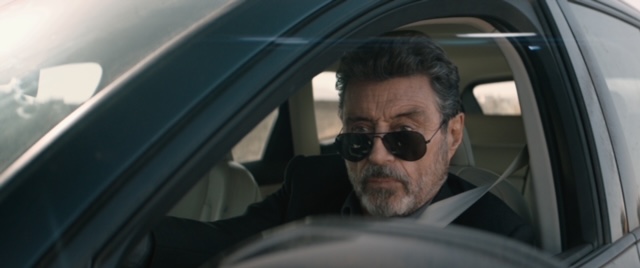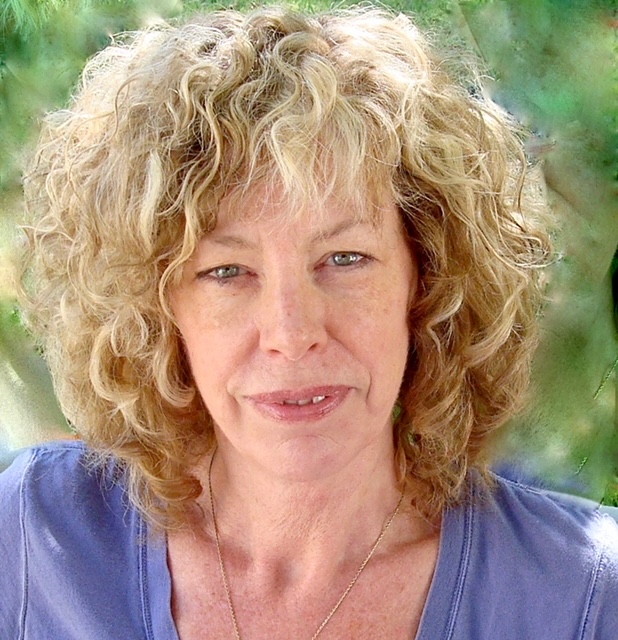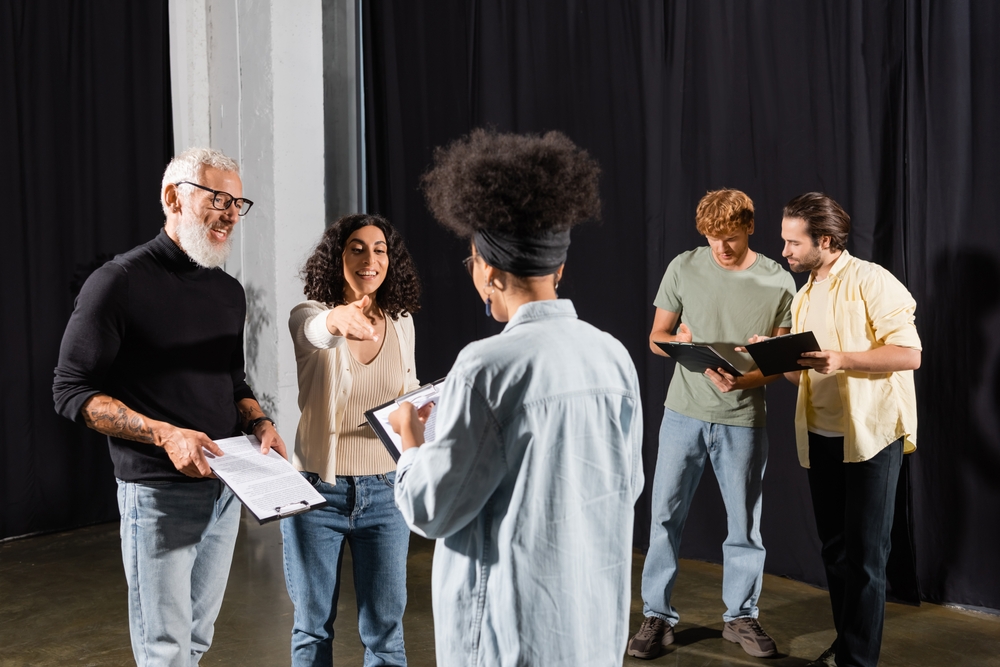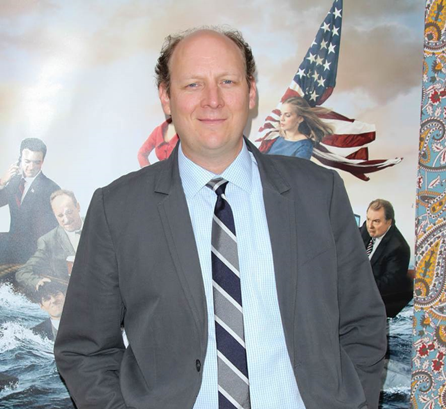Ian McShane and Gonzalo López-Gallego Discuss How ‘American Star’ Came Together
Ian McShane is an acting legend. The 81-year-old Englishman has a career spanning more than six decades, in nearly 150 movies and TV shows. His career is long and impressive enough that different generations know him for different things. It can be as irascible as rogue antique dealer/detective Lovejoy or rogue saloon owner Al Swearengen in Deadwood.
More recently, it’s as a short-tempered rogue proprietor of the famed Continental in the John Wick series. Few have done that kind of character better than McShane. Now, he’s on-screen again in the new drama American Star, as Wilson, a British assassin on a final assignment in Fuerteventura, an island off the Spanish coast.
McShane joined from London, and director Gonzalo López-Gallego joined from Spain for a conversation about the film, which hit theaters and VOD on January 26th.
Ian, what drew you to the project in the first place?
Ian McShane: We worked together on another good movie that got lost in the distribution shuffle back in 2017, a movie called The Hollow Point, with Patrick Wilson, John Leguizamo and myself. It’s a terrific Western noir and we said, “Well, we’d like to work together again.” He came up with this idea and over the next few years, we’d talk about it.
With [screenwriter] Nacho [Faerna], the script developed along the way, became this rich thing that you see now. Then I did a movie called Jawbone, with a producer called Michael Elliot. Michael came in on it with me. I introduced him to Gonzalo and then we found ourselves in 2022 with a financial window to make the movie from a couple of investing angels.
Gonzalo López-Gallego: The way you explain it. It sounds like was super easy. But it took five years! (Laughs)
IM: Oh, it was not super easy. I said it took a few years, but what I was leading to was the fact that when we did make it with the Spanish producers and Mike and my company and you together, it was making the film you want to make, but nobody looking over your shoulder telling you whatever.
GLG: For me, it was a very, very long process. There were moments when we were not 100 percent sure that this movie would happen and it’s been seven years now since the first time I went to Fuerteventura with Nacho.
But we went through different production companies and it was impossible to raise the money here in Spain because we wanted to do it in English. Then, it’s difficult if you do it in English to get the subsidies or the TV and things like that.
There were some moments where we completely felt like this was not gonna happen. We always had Ian with us, but we struggled along the way, many, many times until he introduced us to Mike Elliot. And then things started to happen.
It wasn’t just the opportunity to go to Paradise to get paid to work for a few weeks.
IM: (Laughs) But it was a pleasure. I always sort of knew it would happen. After the pandemic, we had this great financial year and I found the only socialist hedge fund owner in England, Terry Smith, who said to us, “One thing I want to know. Is the ending humor or tragedy?” We said tragedy and he said “I’m in.”
It’s interesting. You both talk about the challenges of making a movie, and honestly, I often wonder how anything ever gets made at all, because everything is so complicated in this business.
GLG: Especially if you think about doing it this way. This movie, with this character, with this ending, with this pacing, everything. I don’t know. My experience in the States, working with the Weinsteins for Apollo 18, then I did The Hollow Point and Open Grave with Atlas Independent and everything, and I went back to Spain and I found myself confronting some really impossible situations. That somehow gave me the strength to think about what I wanted to do and American Star is a real turning point.
IM: All that angst, sometimes it’s very good for the soul because the script got better. I must say, it’s one of those subjects that just seemed to get better over time when we found each other’s ideas. If it was just a film about a hitman, it wouldn’t be anything. But in this film, the relationship he forms in this weird strange way with the girl and the mother gives the film a little heart. It’s not a formula. It’s a European noir. It’s got art in it.
There’s also a fair amount of introspection in the film, where Wilson is trying to find his place in the world. He finds that in the relationships, not just with the girl and her mother, but also with the little boy.
IM: I mean, it’s brought back time and again what he is, but he makes the fatal mistake of going there, thinking maybe this place suits him. Fuerteventura means violent, fierce wind and it really is a great place to be.
GLG: That was one of the main goals to achieve when we discovered Fuerteventura. You feel like it’s stuck in the ‘70s. A place where you can go to a restaurant and eat a really good meal and you actually hear Julio Iglesias singing. It felt like my summer holidays when I was a kid and we wanted to portray that. That kind of last holiday of summer.
We’ve talked about the various characters and one of the things about the movie that is so fascinating is how small the cast is. There’s only a handful of people in it and I’m especially interested in Oscar Coleman, who played the little boy. Ian, you two have real chemistry and I’m curious about how you cast him. Did you read with him?
IM: Well, you know, we talked about it. Obviously, Gonzalo cast the movie how he wanted. I mean, he’s the director. But he asked me and I said, “Well, he looks interesting. He’s a great-looking kid.”
Of course, we rehearsed, but then we semi-improvised. Both the big scenes with him, we filmed at specific times of the day. One was very early in the morning on the beach —the first scene— and then the other one was filmed in the Magic Hour. We had limited time, but it felt very relaxed and easy. He was a charming kid and watching it, it doesn’t seem forced. It seems natural.
GLG: What I liked from him when we did the casting and I think it’s one of the things Ian liked as well, is that he never looked like he was acting. When you see a kid acting, normally they pretend to act as a grownup, but he was acting like a kid.
Ian, you didn’t worry about the rule you don’t work with kids or animals?
IM: (Laughs) Kids or animals! W.C. Fields said that I remember. (Laughs) Not when you’ve got the rest of the movie without a kid. When you do a film on this, every character is so important, you want them to come in and do their best work.
It’s like when you’re in a series, like Lovejoy or Deadwood, when you have a guest star in a show like that, you want them to come in and be terrific. You want them to be comfortable and do their thing. That’s what Gonzalo was like with Fannie [Ardant] and with Nora [Arnezeder] and with Oscar and with Adam [Nagaitis]. They trusted him. So I came in there and we had two days of intensive stuff, so on the day, we didn’t waste any time.
You’ve worked together twice now. Have you started talking about number three?
GLG and IM: (In unison) Yes!
IM: (Laughs) I don’t know what it is, but maybe there will be a musical version of this!
(Both laugh)
Casting directors use Casting Networks every day to discover people like you. Sign up or log in today to get one step closer to your next role.
You may also like:
- ‘Bookie’ Star Andrea Anders On How Taking Risks Led to Her Acting Success
- Carmen Cuba Pulls Back the Curtain on Casting ‘Full Circle’
- Get to Know the Filmmaker: Andrew Barnsley Talks Season 2 of ‘Son of a Critch’




